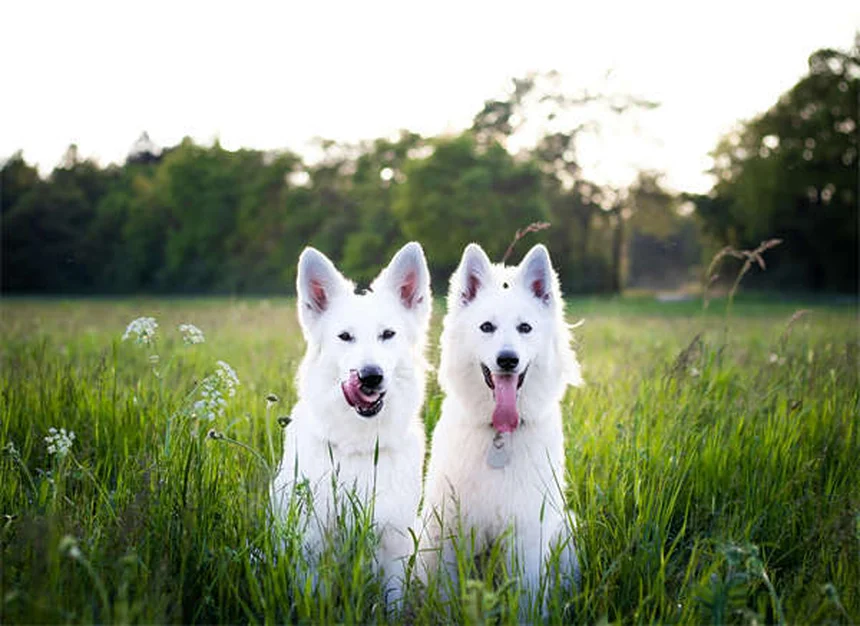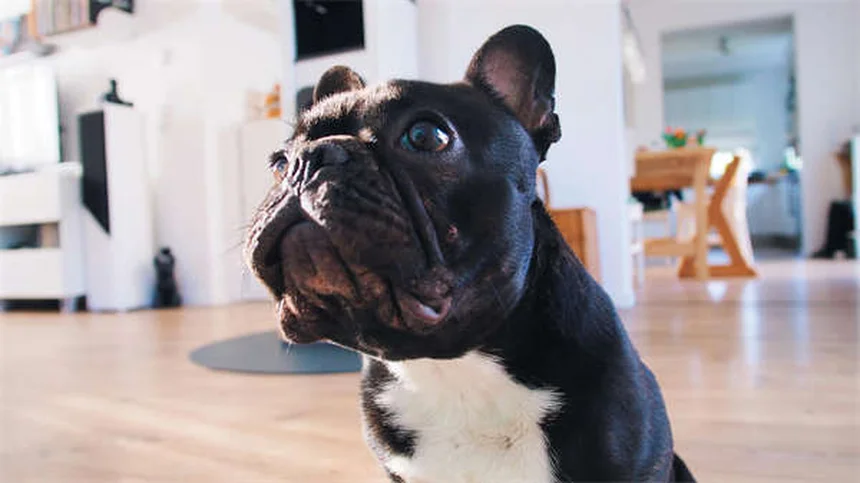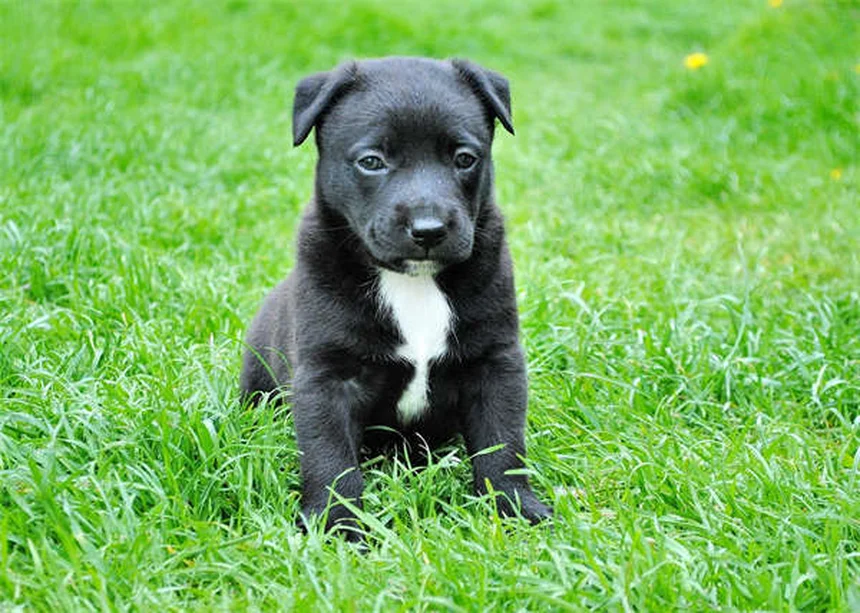Advertisement
How to get rid of dog pee smell for good? The answer is simple: you need the right cleaning approach that actually breaks down those stubborn urine compounds. I've been through this battle myself - that awful ammonia stench that seems to linger no matter how much you scrub. Here's the deal: regular cleaners just mask the smell temporarily, while enzymatic cleaners like Nature's Miracle actually destroy the odor-causing proteins and pheromones that make Fido want to revisit the same spot.Why does this matter? Because if you don't completely eliminate the smell, your dog's sensitive nose will still detect those pee here signals. We're talking about a nose that's 10,000-100,000 times more sensitive than ours! In this guide, I'll walk you through exactly what works (and what doesn't) based on my years of experience with stubborn pet stains. From carpets to hardwood floors, we've got you covered with solutions that actually work - no more wasting money on products that just cover up the problem.
E.g. :Rat Mites: 5 Warning Signs Your Pet Has These Itchy Pests
Advertisement
- 1、Why Does Dog Pee Smell So Bad?
- 2、The Ultimate Dog Pee Cleaning Guide
- 3、When to Call in the Professionals
- 4、Washable Items: Your Secret Weapon
- 5、Understanding Your Dog's Behavior
- 6、Cleaning Product Showdown
- 7、Prevention is the Best Medicine
- 8、The Hidden Dangers of Dog Urine
- 9、Beyond Cleaning: Creating a Pee-Proof Home
- 10、The Psychology of Potty Training
- 11、When Accidents Happen: The Emotional Side
- 12、Advanced Odor Elimination Techniques
- 13、FAQs
Why Does Dog Pee Smell So Bad?
The Science Behind That Awful Smell
Ever walked into a room and immediately thought, "Whoa, what died in here?" That's probably dog pee you're smelling. Dog urine contains pheromones - nature's way of saying "I was here!" to other dogs. It's like their version of social media, but smellier.
Here's the real kicker: when bacteria in the urine break down, they produce ammonia. That's right - the same stuff in cleaning products that makes your eyes water. Now imagine that mixed with dog pheromones. No wonder it smells like a chemical weapon!
Why Your Dog Keeps Going Back to the Same Spot
Picture this: your dog has an accident on the carpet. You clean it up, but... can your dog still smell it? You bet! Those pheromones are like neon signs saying "Bathroom Here!" to your pup.
This is why proper cleaning is so crucial. If you don't completely eliminate the smell, you're basically putting up a "Welcome" mat for future accidents. Not exactly the home decor look we're going for, right?
The Ultimate Dog Pee Cleaning Guide
 Photos provided by pixabay
Photos provided by pixabay
Carpet Rescue Mission
Got a pee stain on your carpet? Don't panic! Here's what you need to do:
Step 1: Blot, don't rub! Grab a clean towel and gently press down on the stain. Think of it like giving your carpet a comforting pat on the back, not an aggressive massage.
Now for the heavy artillery: enzymatic cleaners. These bad boys are like special forces for dog pee - they actually break down the smelly molecules instead of just covering them up. My personal favorite is Nature's Miracle, but Rocco & Roxie gets the job done too.
Hardwood Floor SOS
Wood floors and dog pee are about as compatible as cats and water. But don't worry, we've got solutions!
First things first: always test cleaners in an inconspicuous spot. Because the last thing you need is to turn your beautiful hardwood floor into a modern art project.
Here's a quick comparison of cleaning methods:
| Method | Best For | Pros | Cons |
|---|---|---|---|
| Hydrogen Peroxide | Fresh stains | Kills bacteria | Can bleach surfaces |
| Enzymatic Cleaners | Old stains | Eliminates odors | More expensive |
| Vinegar Solution | Light stains | Natural option | Strong vinegar smell |
When to Call in the Professionals
Signs You Need Backup
Sometimes, despite our best efforts, the pee wins. Here's when to wave the white towel and call in the cavalry:
• The stain has been there longer than your last relationship
• You've tried everything short of setting the house on fire
• Your dog now thinks that spot is their personal toilet
Professional cleaners have industrial-strength equipment and solutions that can tackle even the most stubborn stains. Plus, they'll do all the hard work while you relax with a well-deserved drink.
 Photos provided by pixabay
Photos provided by pixabay
Carpet Rescue Mission
Ever wonder why your housebroken dog suddenly forgot their manners? There could be several reasons:
Health issues are the most common culprit. Just like when you get a UTI and suddenly understand the meaning of "emergency," dogs can develop medical problems that make holding it in impossible.
Behavioral issues are another possibility. Maybe your dog is anxious, marking territory, or just really excited to see you (we call this the "I'm so happy I might pee" syndrome).
Washable Items: Your Secret Weapon
Laundry to the Rescue
Got pee on bedding, clothes, or dog beds? Thank goodness for washing machines!
Here's a pro tip: always use cold water. Hot water can actually set the stain and make the smell worse - kind of like cooking the pee into the fabric. Not exactly the recipe we're going for.
Add an enzymatic laundry booster to your regular detergent. It's like giving your laundry a superhero sidekick that fights stains and odors while your detergent handles the everyday grime.
When the Washing Machine Isn't Enough
Some stains laugh in the face of your washing machine. For these tough cases, you might need to:
1. Soak the item overnight in an enzymatic solution
2. Use a stain remover specifically designed for pet accidents
3. Consider professional cleaning for delicate or valuable items
Remember: persistence pays off. Your favorite blanket doesn't have to become a permanent pee-scented air freshener!
Understanding Your Dog's Behavior
 Photos provided by pixabay
Photos provided by pixabay
Carpet Rescue Mission
Is your dog having accidents because they're sick or just being stubborn? This is the million-dollar question.
Medical issues can include:
• Urinary tract infections (the dog version of "gotta go RIGHT NOW")
• Diabetes (makes them drink and pee more)
• Arthritis (makes it hard to get outside in time)
Behavioral causes might be:
• Anxiety (like during thunderstorms)
• Territory marking (especially in multi-dog households)
• Simple forgetfulness in older dogs
When to See the Vet
Here's a simple rule: if your normally housebroken dog starts having accidents, schedule a vet visit. It's better to be safe than sorry, and early treatment can prevent bigger problems down the road.
Think of it like this: if you suddenly couldn't control when you went to the bathroom, you'd want to see a doctor, right? Your dog deserves the same care.
Cleaning Product Showdown
Store-Bought vs. DIY Solutions
Wondering whether to buy a commercial cleaner or make your own? Let's break it down:
Commercial enzymatic cleaners are the gold standard. They're specifically designed to break down urine components and eliminate odors. The downside? They can be pricey.
DIY solutions (like vinegar and baking soda) are cheaper and more natural. They work okay for fresh stains but often struggle with set-in odors. Plus, your house will smell like a salad dressing for a while.
Our Top Product Picks
After testing countless products (and ruining many old towels), here are our favorites:
• Best Overall: Nature's Miracle - works on most surfaces and stains
• Budget Pick: Simple Solution - nearly as effective for less money
• Heavy Duty: Rocco & Roxie - for those "oh no" level accidents
Remember: no product is magic. Proper technique matters just as much as the cleaner you use.
Prevention is the Best Medicine
Training Tips
They say an ounce of prevention is worth a pound of cure. When it comes to dog pee, that's especially true!
For puppies, establish a consistent potty schedule. Take them out:
• First thing in the morning
• After meals
• After naps
• Before bedtime
Reward successes with treats and praise. Positive reinforcement works way better than punishment - nobody learns well when they're scared.
Environmental Management
Until your dog is reliably housebroken, limit their access to carpeted areas. Baby gates are your friend!
For dogs that mark indoors, consider belly bands (for males) or dog diapers. They're not ideal long-term solutions, but they can help during the training process.
And remember: patience is key. Your dog isn't having accidents to spite you - they just need time and consistency to learn.
The Hidden Dangers of Dog Urine
Health Risks You Might Not Know About
Did you know that dog urine can actually damage your home's air quality? Ammonia fumes from dried urine can irritate your lungs and eyes - especially if you have asthma or allergies. It's like living with an invisible bully that keeps poking your respiratory system!
Here's something even scarier: over time, the uric acid in dog pee can actually eat through wood floors and concrete. I've seen cases where untreated urine stains caused permanent damage that required complete floor replacement. Now that's what I call an expensive "oops" moment!
The Sneaky Way Urine Affects Your Dog's Behavior
Ever notice how your dog seems obsessed with certain spots in your house? That's because their nose is up to 100,000 times more sensitive than ours. What smells faint to us is like a flashing billboard to them.
This creates a vicious cycle: the more they smell old urine, the more they're tempted to go there again. It's like when you walk past a bakery and suddenly "need" a cookie - except your dog's version leaves permanent stains on your carpet!
Beyond Cleaning: Creating a Pee-Proof Home
Smart Home Upgrades That Help
Let's talk about some genius home modifications that can save your floors:
• Waterproof area rugs over carpet - these are lifesavers in high-traffic dog areas• Easy-to-clean wall paints (semi-gloss finishes wipe clean better than flat)• Vinyl plank flooring that looks like wood but handles accidents like a champ
I recently helped a client transform their home with these changes, and guess what? Their cleaning time dropped by 70%! Now they actually have time to enjoy their dog instead of constantly playing "find the pee spot."
The Power of Proper Lighting
Here's a trick most people never think about: night lights can prevent accidents. Older dogs often have trouble seeing in the dark, making them more likely to have indoor accidents.
Try placing small LED lights along the path to your dog's potty area. It's like creating a runway for your pup! One of my clients did this and saw nighttime accidents decrease by 90% in just two weeks.
The Psychology of Potty Training
Why Punishment Doesn't Work
Ever been tempted to rub your dog's nose in an accident? Here's why that's a terrible idea:
Dogs don't connect punishment with something they did hours ago. All you're teaching them is that you're scary when there's pee on the floor. This can actually make the problem worse by creating anxiety that leads to more accidents.
Instead, focus on positive reinforcement. When your dog goes outside, throw a party! Treats, praise, belly rubs - make it the best moment of their day. I've seen dogs learn faster from one week of positive training than months of punishment.
The Magic of Routine
Dogs thrive on predictability. Creating a consistent schedule helps their bodies adjust to regular potty times. Here's a sample schedule that works wonders:
| Time | Activity | Why It Works |
|---|---|---|
| 7:00 AM | Morning potty break | Empty bladder after long night |
| 12:30 PM | Post-lunch walk | Food stimulates digestion |
| 5:00 PM | Evening relief | Pre-dinner empty |
| 10:00 PM | Last call | Prevents nighttime accidents |
When Accidents Happen: The Emotional Side
Keeping Your Cool
Let's be real - finding a fresh pee stain can test anyone's patience. But here's the thing: your dog can sense your frustration, which only adds to their stress.
Instead of yelling, take three deep breaths. Remember that accidents are usually not intentional acts of rebellion. One client told me she pretends she's a detective solving a mystery rather than a frustrated owner - it completely changed her perspective!
The Importance of Self-Care
Dealing with constant accidents can be exhausting. Don't forget to take care of yourself too!
• Keep cleaning supplies in multiple locations so you're always prepared• Reward yourself after particularly challenging cleanups (that chocolate bar is well deserved)• Remember that this phase won't last forever - even the worst potty training struggles eventually end
I always tell my clients: a happy owner makes for a happier dog. Your mental health matters just as much as your dog's training!
Advanced Odor Elimination Techniques
The Power of Black Lights
Want to know a secret weapon of professional cleaners? UV black lights reveal old urine stains you can't see with the naked eye.
Here's how to use one effectively:1. Wait until nighttime and turn off all lights2. Slowly scan the room with the black light3. Mark any glowing spots with painter's tape4. Treat each spot with enzymatic cleaner
One family I worked with found over 20 old stains they never knew existed! After proper treatment, their dog finally stopped having repeat accidents in those areas.
When to Replace Instead of Clean
Sometimes, no amount of cleaning can save a urine-soaked item. Here are signs it's time to say goodbye:
- The smell returns within hours of cleaning- You notice discoloration that won't fade- The material feels stiff or crusty- Your dog keeps targeting the same spot no matter what you do
I know it's hard to throw things away, but sometimes a fresh start is the healthiest option for both you and your pup!
E.g. :How to Get Dog Pee Out of Carpet: Smells and Stains on Fabric
FAQs
Q: What's the fastest way to remove fresh dog urine from carpet?
A: When you catch that accident quickly, here's what we recommend: First, blot (don't rub!) with paper towels or a clean cloth to absorb as much liquid as possible. Then, mix equal parts white vinegar and water in a spray bottle and lightly mist the area. After 5 minutes, blot again. Finally, sprinkle baking soda over the spot, let it sit for an hour, then vacuum. This quick fix neutralizes odors temporarily, but for complete odor removal, you'll still want to follow up with an enzymatic cleaner within 24 hours to break down those stubborn urine proteins.
Q: Why does my dog keep peeing in the same spot inside?
A: Dogs are creatures of habit with incredible noses - they can detect urine smells we can't even imagine! The pheromones in their urine act like GPS markers saying "this is the bathroom spot." Even if you think you've cleaned thoroughly, traces remain that only your dog can smell. That's why we always recommend enzymatic cleaners specifically designed for pet urine - they actually break down these chemical markers rather than just masking the smell. Also, consider that your dog might be stressed or have a medical issue if this is new behavior.
Q: Are homemade cleaners effective for dog urine removal?
A: While DIY solutions like vinegar and baking soda can help with fresh stains, they simply can't compete with commercial enzymatic cleaners for complete odor elimination. Here's why: urine contains uric acid crystals that bond to surfaces and resist regular cleaning. Only specialized enzymes can break these down. That said, for quick cleanups between deep cleanings, our favorite homemade mix is 1 cup hydrogen peroxide, 1 teaspoon dish soap, and 1/4 cup baking soda. Just test it on a hidden area first!
Q: How can I tell if my dog's accidents are due to medical issues?
A: We always tell pet parents to watch for these red flags: increased frequency of urination, straining to pee, blood in urine, excessive licking of genitals, or accidents from a previously house-trained dog. Any of these signs mean you should visit your vet ASAP. Medical causes like UTIs, diabetes, or kidney issues are surprisingly common. If your dog checks out healthy, then it's likely behavioral - maybe stress, marking, or incomplete house training.
Q: What's the best way to clean dog urine from hardwood floors?
A: Hardwood requires special care to prevent damage. Here's our proven method: First, blot up all moisture immediately. Then, mix 1/4 cup white vinegar with 1 quart warm water and gently wipe the area - vinegar neutralizes ammonia but won't harm finished wood. After drying completely, apply a thin layer of baking soda paste (baking soda + water) to the stain, let sit for 24 hours, then wipe clean. Finally, condition the wood with a product like Murphy's Oil Soap. For severe cases, sanding and refinishing might be necessary.







